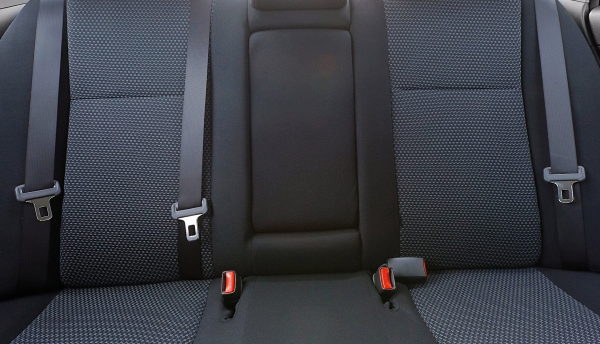
China is set to become the biggest seat market for Adient over the next five years, according to CEO Bruce McDonald. The company, that previously formed the automotive seating and interiors business for Johnson Controls, is set to take the majority of the country’s seat assembly market according to IHS Automotive forecasts.
McDonald also sees self-driving cars and electric vehicles (EVs) could provide an opportunity for the company to increase revenues, McDonald told Reuters in a recent interview. Among the company's newest customers are two California-based EV makers – Tesla Motors and start-up Atieva. “As demand shifts to vehicles with more premium content, and from sedans to crossover vehicles, Adient should see revenues expand, even as overall vehicle demand slows,” McDonald said. He added, "The migration of high-end features such as cooling seats with massage functions to mass market vehicles and the growth of SUVs and CUVs should be big tailwinds for us."
Moreover, McDonald believes the shift in demand to vehicles with more premium content, and from sedans to crossover vehicles, could push revenues up. "The migration of high-end features such as cooling seats with massage functions to mass market vehicles and the growth of SUVs and CUVs should be big tailwinds for us," he said.
Several suppliers are announcing plans for intelligent seating solutions as a means of adding technology to the interiors market. Last week, Magna said that it is developing a smart auto seat capable of monitoring a driver’s heart rate to identify if the driver is feeling drowsy. Magna expects smart seats to play a key role in self-driving cars, where such vehicles will require monitoring devices to ensure drivers are ready to regain control when required. HELLA has also announced that it is working on technology capable of folding or unfolding an SUV's rear seats at the push of a button, integrating ambient lighting into vehicle seating and locks or unlocks turntable seats in autonomous vehicle.
Growth of the market in China
Lately, several OEMs have announced expansion plans in China, urging suppliers to expand their output. For instance, in April 2016, Fiat Chrysler Automobiles started production of the Jeep Renegade sport utility vehicle in China. In addition, Renault commenced production at its Wuhan plant in China's central Hubei province in February 2016. At full capacity, the factory could output 150,000 units per year.
IHS Automotive expects that demand for seat assembly in China will reach 85.5 million units in 2019, while demand in the next largest region, Europe, is anticipated to reach 73.3 million units. The seat adjusters market in China is also led by JCI, which has a strongly entrenched position among the Asian vehicle manufacturers. It supplies to a large number of vehicle manufacturers in China, including Shanghai-GM, Geely, Changan, FAW-Volkswagen, and Beijing Hyundai.
Focus on core strategy benefits focus on a single product area
Johnson Controls, Inc. (JCI) decision to spin off Adient came as part of the Tyco merger, and is part of a greater industry trend of focusing on core strengths. One of the key reasons for splitting the seating and interiors business off from the rest of the company is the different cash and investment requirements of the automotive industry in general, compared with JCI’s other businesses. The separation of Adient was also the final part of its exit from automotive interiors. Having sold its headliner and sun visor business to Atlas Holdings, a private equity company in 2014, the company had sold its stake in its JV with Pricol of India to Pricol itself in May 2015.
Automakers' purchasing strategy for seats has changed over time; they prefer making bulk sourcing for seating parts. About five years ago, OEMs ordered approximately 70% of seats from one supplier. The remaining 30% was assembled from components purchased from a variety of vendors. The situation has now reversed as OEMs opt for standardised parts such as a common seat frame and seat cushion for all their vehicles. For instance, Mercedes-Benz and BMW use a common seat frame developed by JCI. This entire process results in considerable savings at the automakers’ end.
For suppliers, it is an incredibly time- and capital-consuming effort to keep seating products equipped with the latest technologies. This is why the focus is being diverted to becoming a specialist supplier. As a result, tier-1 suppliers have been making large-scale acquisitions of suppliers in the automotive industry in the last couple of years, with some deals being comprised of “unit-only” acquisitions of large tier-ones (e.g. Grupo Antolin’s USD535 million deal for Magna’s interiors businesses in 2015). The entire interior components will likely be supplied in one integrated system by an interior “megasupplier”. There are significant economies of scale by sourcing this way and big savings are being made for the seat system as a whole.








